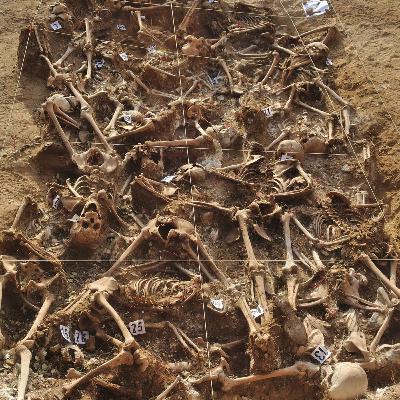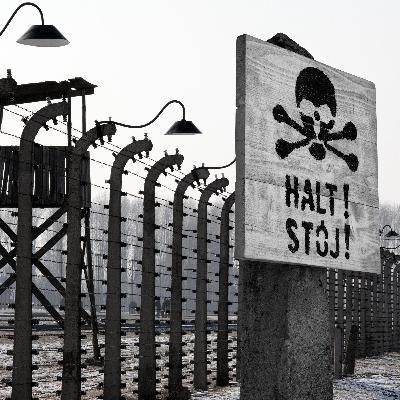Echoes of the axe: Neolithic war trophies and climate crisis in ancient Alsace
Description
Delve into a chilling new archaeological discovery from northeastern France that is fundamentally reshaping our understanding of Neolithic Europe. Recent groundbreaking research, published in Science Advances, uncovers gruesome evidence of organised violence, torture, and ritualised victory celebrations dating back around 6,000 to 6,300 years ago (4300-4150 BCE) at the sites of Achenheim and Bergheim.
This isn't the romanticised view of peaceful early farmers; instead, it reveals sophisticated societies engaged in brutal acts of psychological warfare. Our episode will explore:
• The discovery of 82 individuals in circular pits, including complete skeletons showing signs of "overkill" and isolated, severed left upper limbs.
• How innovative multi-isotope analysis allowed researchers to distinguish between local defenders and foreign invaders, likely from the Paris Basin region. Victims with complete skeletons showed higher mobility and physiological stress, suggesting they were outsiders, while severed limbs had local isotopic values.
• The interpretation of these acts as one of the earliest well-documented instances of martial victory celebrations in prehistoric Europe, involving public displays of mutilated enemy corpses and trophy-taking to reinforce social cohesion and dehumanise the enemy.
• The compelling connection between this period of increased violence and significant climate volatility across Western Europe (approx. 4400-3600 BCE), leading to population movements, resource competition, and territorial disputes.
Join us as we delve into this dark, yet fascinating, chapter of human history, challenging our assumptions about prehistoric intelligence and societal complexity in the face of existential threats.
























